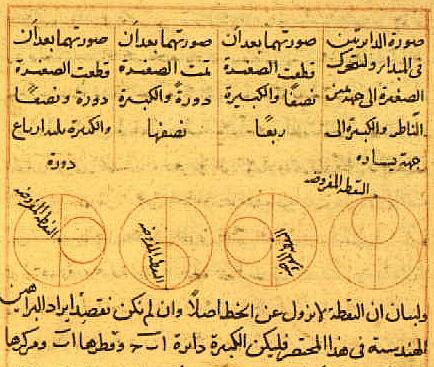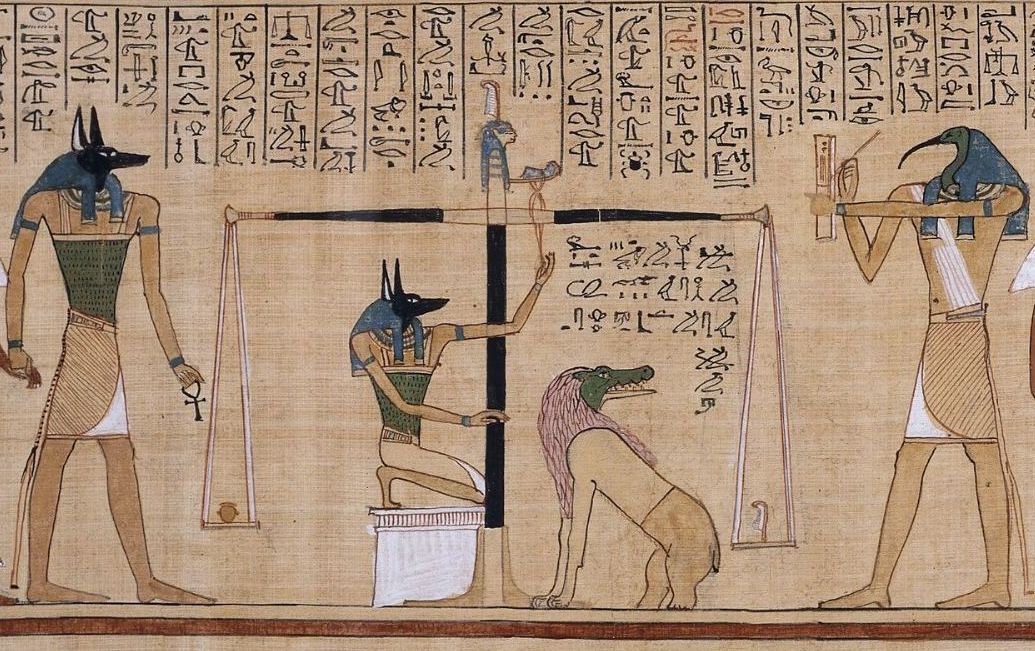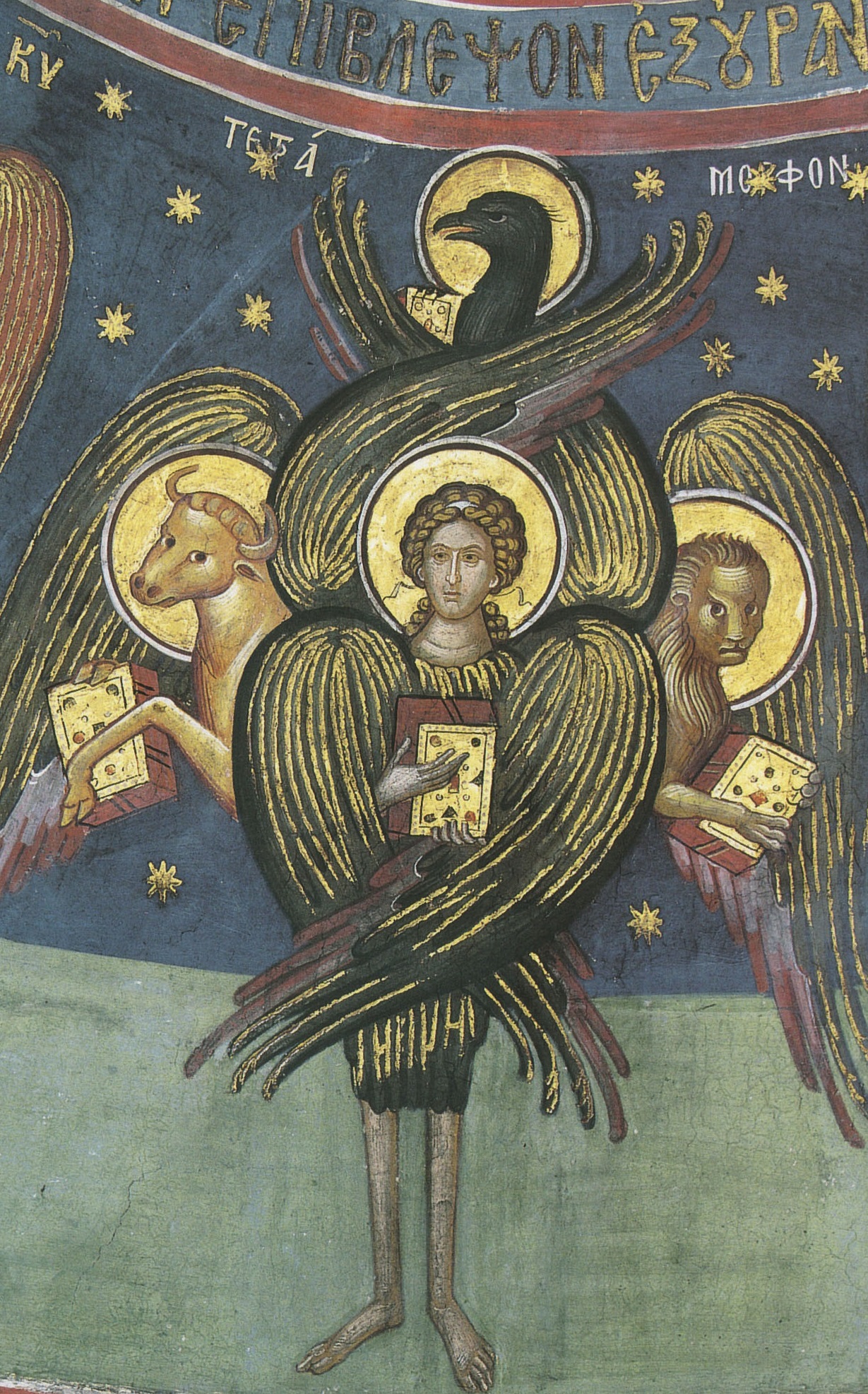|
Alam Al Jabarut
''Alam al-Jabarut'' ( ar, عالم الجبروت ("World of Power") Cyril Glassé, Huston Smith ''The New Encyclopedia of Islam'' Rowman Altamira 2003 pp. 144–45) is realm proposed in Islamic cosmology. According to Suhrawardi (1154–1191), this is the highest realm, and denotes the place of God's presence. Below ''alam al-jabarut'' lies '' alam al-malakut'' ("World of Sovereignty"), followed by alam al-mulk ("World of Dominion"). The term ''jabarut'' doesn't appear in the Quran, but ''al-jabbar'' does (59:23). Thus the things in al-jabarut were whose which cannot change and are compelled in their state of eternity. In the writings of al-Ghazali (c. 1058–1111), ''alam al-jabarut'' has not been conceived as the highest realm yet, but connects the physical realm (''al-mulk'') with the intelligible world (''al-malakut''). First centuries later, ''alam al-jabarut'' becomes an independent ontological realm, latest within the writings of Suhrawardi. Here, '' al-malakut'' is belo ... [...More Info...] [...Related Items...] OR: [Wikipedia] [Google] [Baidu] |
Islamic Cosmology
Islamic cosmology is the cosmology of Islamic societies. It is mainly derived from the Qur'an, Hadith, Sunnah, and current Islamic as well as other pre-Islamic sources. The Qur'an itself mentions seven heavens.Qur'an 2:29 Metaphysical principles Duality In Islamic thought the cosmos includes both the Unseen Universe ( ar, عالم الغيب, ') and the Observable Universe ( ar, عالم الشهود, ''Alam-al-Shahood''). Nevertheless, both belong to the created universe. Islamic dualism does not constitute between spirit and matter, but between Creator (God) and creation. The latter including both the seen and unseen. Sufi cosmology Sufi cosmology ( ar, الكوزمولوجية الصوفية) is a general term for cosmological doctrines associated with the mysticism of Sufism. These may differ from place to place, order to order and time to time, but overall show the influence of several different cosmographies: *The Quran's testament concerning God and immaterial be ... [...More Info...] [...Related Items...] OR: [Wikipedia] [Google] [Baidu] |
Rasūl
Prophets in Islam ( ar, الأنبياء في الإسلام, translit=al-ʾAnbiyāʾ fī al-ʾIslām) are individuals in Islam who are believed to spread God's message on Earth and to serve as models of ideal human behaviour. Some prophets are categorized as messengers ( ar, رسل, rusul, sing. , ), those who transmit divine revelation, most of them through the interaction of an angel. Muslims believe that many prophets existed, including many not mentioned in the Quran. The Quran states: "And for every community there is a messenger." Belief in the Islamic prophets is one of the six articles of the Islamic faith. Muslims believe that the first prophet was also the first human being, Adam, created by God. Many of the revelations delivered by the 48 prophets in Judaism and many prophets of Christianity are mentioned as such in the Quran but usually with Arabic versions of their names; for example, the Jewish Elisha is called Alyasa', Job is Ayyub, Jesus is 'Isa, etc. The ... [...More Info...] [...Related Items...] OR: [Wikipedia] [Google] [Baidu] |
Afterlife Places
The afterlife (also referred to as life after death) is a purported existence in which the essential part of an individual's identity or their stream of consciousness continues to live after the death of their physical body. The surviving essential aspect varies between belief systems; it may be some partial element, or the entire soul or spirit of an individual, which carries with it and may confer personal identity or, on the contrary, nirvana. Belief in an afterlife is in contrast to the belief in oblivion after death. In some views, this continued existence takes place in a spiritual realm, while in others, the individual may be reborn into this world and begin the life cycle over again, likely with no memory of what they have done in the past. In this latter view, such rebirths and deaths may take place over and over again continuously until the individual gains entry to a spiritual realm or otherworld. Major views on the afterlife derive from religion, esotericism an ... [...More Info...] [...Related Items...] OR: [Wikipedia] [Google] [Baidu] |
Sufi Cosmology
Sufi cosmology ( ar, الكوزمولوجية الصوفية) is a Sufi approach to cosmology which discusses the creation of man and the universe, which according to mystics are the fundamental grounds upon which Islamic religious universe is based. According to Sufi cosmology, God's reason for the creation of this cosmos and humankind is the "manifestation" and "recognition" of Himself as it is stated in Hadith Qudsi – " I was a hidden Treasure; I desired to be recognized so I created the creature". Emanation Islamic Sufis describe the Divine Descent and the creation of universe and humankind in the following stages, when Noor-e-Ahadi (Light of One), coming out of His self-isolated oneness, intended to manifest Himself in multiplicity. These stages are also termed as “Tanzalat-e-Satta. Many saints have explained these Tanzalat-e-Satta in their books. Abu Saeed Mubarak Makhzoomi has discussed them in his Arabic book called Tohfa Mursala. They are also discussed in the exeg ... [...More Info...] [...Related Items...] OR: [Wikipedia] [Google] [Baidu] |
Beri'ah
Beri'ah (Hebrew: בְּרִיאָה), Briyah, or B'ri'ah (also known as ''Olam Beriah'', עוֹלָם בְּרִיאָה in Hebrew, literally "the World of Creation"), is the second of the four celestial worlds in the Tree of Life of the Kabbalah, intermediate between the World of Emanation (Atziluth) and the World of Formation (Yetzirah), the third world, that of the angels. It is known as the World of Creation, or Korsia (from Heb. כּוּרסָה - "seat, chair", ''the Throne''). Beri'ah is the first of the four worlds to be created ''ex nihilo'', since Atzilut was emanated rather than created. Thus, although there exist beings that dwell in Atzilut, those beings are overwhelmed by the Divine Light and are unaware of their own existence; in Beri'ah however, the angels are dimly aware of their own existence as distinct from God's. Beri'ah is the abode of the permanent archangels, as opposed to the non-permanent angels which dwell in Yetzirah. Correspondences * The first of ... [...More Info...] [...Related Items...] OR: [Wikipedia] [Google] [Baidu] |
Afterlife
The afterlife (also referred to as life after death) is a purported existence in which the essential part of an individual's identity or their stream of consciousness continues to live after the death of their physical body. The surviving essential aspect varies between belief systems; it may be some partial element, or the entire soul or spirit of an individual, which carries with it and may confer personal identity or, on the contrary, nirvana. Belief in an afterlife is in contrast to the belief in oblivion after death. In some views, this continued existence takes place in a spiritual realm, while in others, the individual may be reborn into this world and begin the life cycle over again, likely with no memory of what they have done in the past. In this latter view, such rebirths and deaths may take place over and over again continuously until the individual gains entry to a spiritual realm or otherworld. Major views on the afterlife derive from religion, esotericism an ... [...More Info...] [...Related Items...] OR: [Wikipedia] [Google] [Baidu] |
Jannah
In Islam, Jannah ( ar, جَنّة, janna, pl. ''jannāt'',lit. "paradise, garden", is the final abode of the righteous. According to one count, the word appears 147 times in the Quran. Belief in the afterlife is one of the six articles of faith in Sunni and Twelver Shi'ism, a place where " believers" (''Mumin'') will enjoy pleasure, while the unbelievers (''Kafir'') will suffer in ''Jahannam''. Thomassen, "Islamic Hell", Numen, 56, 2009: p.401 Both ''Jannah'' and ''Jahannam'' are believed to have several levels, in both cases, the higher the level, the more desirable -- in ''Jannah'' the higher the prestige and pleasure, in ''Jahannam'' the less the suffering. The afterlife experiences are described as physical, psychic and spiritual. Jannah is described with physical pleasures such as gardens, houris, wine that has no aftereffects, and "divine pleasure". Their reward of pleasure will vary according to the righteousness of the person. The characteristics of ''Jannah'' often ... [...More Info...] [...Related Items...] OR: [Wikipedia] [Google] [Baidu] |
Al-Insān Al-Kāmil
In Islamic theology, ''al-Insān al-Kāmil'' ( ar, الإنسان الكامل), also rendered as ''Insān-i Kāmil'' (Persian/Urdu: ) and ' ( Turkish), is an honorific title to describe the Islamic prophet Muhammad. The phrase means "the person who has reached perfection", literally "the complete person". It is an important concept in Islamic culture of the prototype human being, pure consciousness, one's true identity, to be contrasted with the material human who is bound by their senses and materialism. The term was originally used by Sunni Sufis and is still used by them, but it is also used by Alawis and Alevis. This idea is based upon a hadith, which was used by Ibn Arabi, that states about Muhammad: "I was a prophet when Adam was between water and clay." The Sunni Islamic scholar Muhammad Alawi al-Maliki, has published a Sirah on Muhammad as ''al-Insān al-Kāmil''. Al-Jili was the author of an Arabic text entitled ''al-Insān al-Kāmil''. Ismailis believe that each Imam ... [...More Info...] [...Related Items...] OR: [Wikipedia] [Google] [Baidu] |
Adam In Islam
Adam ( ar-at, آدم, ʾĀdam) is believed to have been the first human being on Earth and the first prophet ( ar, نبي, ''nabī'') of Islam. Adam's role as the father of the human race is looked upon by Muslims with reverence. Muslims also refer to his wife, Hawā ( ar, حواء, Eve), as the "mother of mankind". Muslims see Adam as the first Muslim, as the Quran states that all the Prophets preached the same faith of Islam ( ar, إسلام, Submission to God). According to Islamic belief, Adam was created from the material of the earth and brought to life by God. God placed Adam in a paradisical Garden. After Adam erred by eating from the forbidden tree, he was sent down to Earth, but he was forgiven after uttering a specific prayer taught to him by God. This story is seen as both a literal even among Muslims as well as an allegory for human relationship towards God. Islam doesn't necessarily adhere to young earth Creationism, and it is commonly held that sentient life on eart ... [...More Info...] [...Related Items...] OR: [Wikipedia] [Google] [Baidu] |
Cherub
A cherub (; plural cherubim; he, כְּרוּב ''kərūḇ'', pl. ''kərūḇīm'', likely borrowed from a derived form of akk, 𒅗𒊏𒁍 ''karabu'' "to bless" such as ''karibu'', "one who blesses", a name for the lamassu) is one of the unearthly beings who directly attend to God, according to Abrahamic religions. The numerous depictions of cherubim assign to them many different roles, such as protecting the entrance of the Garden of Eden. Abrahamic religious traditions In Jewish angelic hierarchy, cherubim have the ninth (second-lowest) rank in Maimonides' ''Mishneh Torah'' (12th century), and the third rank in Kabbalistic works such as ''Berit Menuchah'' (14th century). ''De Coelesti Hierarchia'' places them in the highest rank alongside Seraphim and Thrones. In the Book of Ezekiel and (at least some) Christian icons, the cherub is depicted as having two pairs of wings, and four faces: that of a lion (representative of all wild animals), an ox ( domestic animals), ... [...More Info...] [...Related Items...] OR: [Wikipedia] [Google] [Baidu] |
Shahab Al-Din Yahya Ibn Habash Suhrawardi
"Shihāb ad-Dīn" Yahya ibn Habash Suhrawardī ( fa, شهابالدین سهروردی, also known as Sohrevardi) (1154–1191) was a PersianEdward Craig, Routledge Encyclopedia of Philosophy, "al-Suhrawardi, Shihab al-Din Yahya (1154-91)" Routledge 1998. Excerpt: "Shihab al-Din Yahya ibn Habash ibn Amirak Abu’l-Futuh al-Suhrawardi, known as al-Maqtul (the Slain One) in reference to his execution, and usually referred to as Shaykh al-Ishraq after his school of Illuminationist philosophy (hikmat al-ishraq), was born in AH 549/AD 1154 in the village of Suhraward in northwestern Iran." philosopher and founder of the Iranian school of Illuminationism, an important school in Islamic philosophy. The "light" in his "Philosophy of Illumination" is the source of knowledge. He is referred to by the honorific title ''Shaikh al-ʿIshraq'' "Master of Illumination" and ''Shaikh al-Maqtul'' "the Murdered Master", in reference to his execution for heresy. Mulla Sadra, the Persian sage of the ... [...More Info...] [...Related Items...] OR: [Wikipedia] [Google] [Baidu] |
Accident (philosophy)
An accident (Greek ), in metaphysics and philosophy, is a property that the entity or substance has contingently, without which the substance can still retain its identity. An accident does not affect its essence. It does not mean an "accident" as used in common speech, a chance incident, normally harmful. Examples of accidents are color, taste, movement, and stagnation. Accident is contrasted with essence: a designation for the property or set of properties that make an entity or substance what it fundamentally is, and which it has by necessity, and without which it loses its identity. Aristotle made a distinction between the essential and accidental properties of a thing. Thomas Aquinas and other Catholic theologians have employed the Aristotelian concepts of substance and accident in articulating the theology of the Eucharist, particularly the transubstantiation of bread and wine into body and blood. In this example, the bread and wine are considered accidents, since at trans ... [...More Info...] [...Related Items...] OR: [Wikipedia] [Google] [Baidu] |



.jpg)
